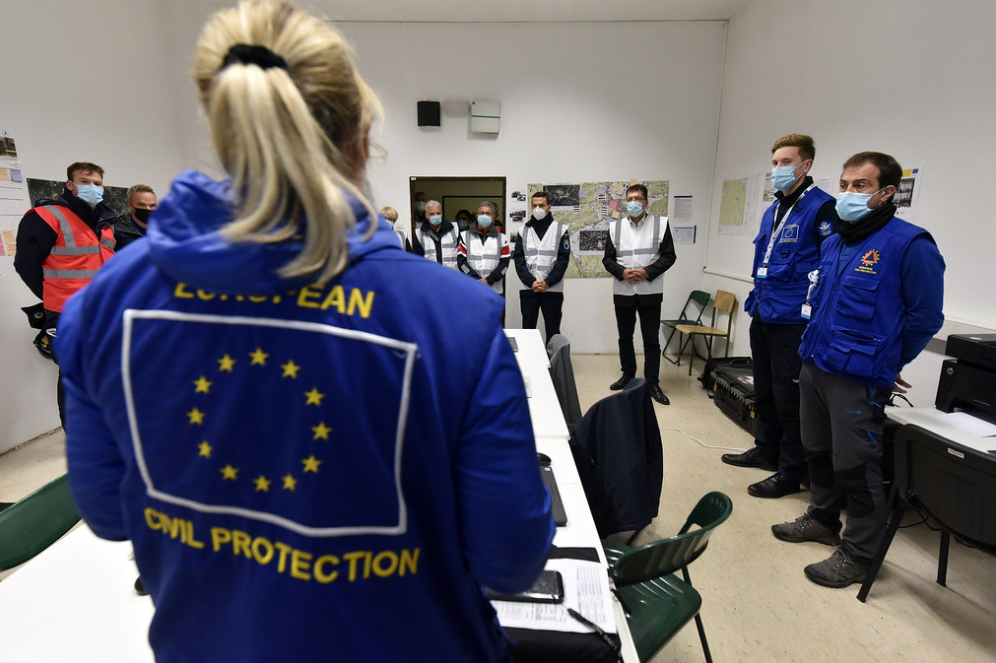Shared Socioeconomic Pathways
Shared Socioeconomic Pathways (SSPs) are a collection of climate scenarios, found in the IPCC’s periodic reports. The scenarios merge together different aspects of climate change research, from the physical to the socioeconomic, with the goal of generating holistic knowledge that gives greater meaning to the various elements by placing them in an overall context. They […]
Nature-based Solutions – NBS
Actions to protect, sustainably manage and restore natural or modified ecosystems that address societal challenges effectively and adaptively, simultaneously providing human well-being and biodiversity benefits. Source: IPCC AR6 Glossary For further information: IPCC Focal Point per l’Italia: Nature Based Solutions Convention on Biological Diversity IUCN: Nature Based Solutions European Commission: Biodiversity Strategy for 2030 EEA: […]
Loss and damage
Research has taken Loss and Damage (capitalised letters) to refer to political debate under the United Nations Framework Convention on Climate Change (UNFCCC) following the establishment of the Warsaw Mechanism on Loss and Damage in 2013, which is to ‘address loss and damage associated with impacts of climate change, including extreme events and slow onset […]
Adaptation

In human systems, the process of adjustment to actual or expected climate and its effects, in order to moderate harm or exploit beneficial opportunities. In natural systems, the process of adjustment to actual climate and its effects; human intervention may facilitate adjustment to expected climate and its effects. The term “adaptation” can also encompass the […]
Community-based adaptation

Local, community-driven adaptation. Community-based adaptation focuses attention on empowering and promoting the adaptive capacity of communities. It is an approach that takes context, culture, knowledge, agency and preferences of communities as strengths. Source: IPCC AR6 Glossary For further information: Progetto CHANGE WE CARE Progetto Blue-Ap Piattaforma web “Osservatorio Partecipazione” Community-Based Adaptation in practice (CARE, 2014)
Global warming
Global warming refers to the increase in global surface temperature relative to a baseline reference period, averaging over a period sufficient to remove interannual variations (e.g., 20 or 30 years). A common choice for the baseline is 1850–1900 (the earliest period of reliable observations with sufficient geographic coverage), with more modern baselines used depending upon […]
Mitigation
A human intervention to reduce emissions or enhance the uptake of greenhouse gases from the atmosphere. Source: IPCC AR6 Glossary For further information: CMCC: Cos’è la mitigazione dei cambiamenti climatici
Costal-setback zone
A coastal setback zone is a buffer area where certain or all types of development are prohibited or significantly restricted. A setback zone is usually defined by a specific distance from the shoreline, where the shoreline is often featured by the highest water mark or permanent vegetation line. The main functions of the coastal setback […]
Sustainable development
Development that meets the needs of the present without compromising the ability of future generations to meet their own needs and balances social, economic and environmental concerns. Source: IPCC AR6 Glossary For further information: CMCC: Emissioni di gas serra: chi paga? Etica – Sviluppo – Equità Alleanza Italiana Per Lo Sviluppo Sostenibile
Mega-fires
Mega-fires are fires that cover more than 100,000 acres (40,000 hectares or 400 square kilometers), whose expansion is accelerated by high temperatures and drought. They are extremely difficult to contain: usually their limit depends only on the amount of burnable vegetation available. Mega-fires can also be considered as such based on the significance of their […]